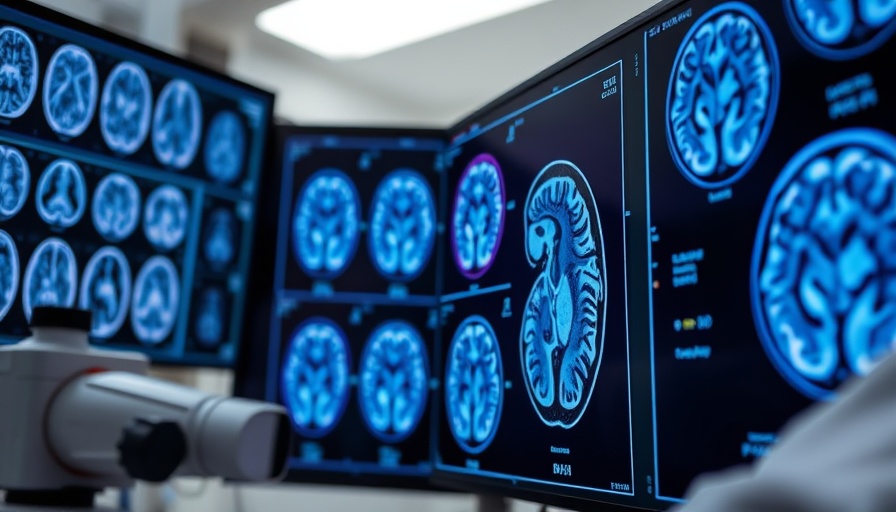
Revolutionary Study Reveals Lithium's Potential in Reversing Alzheimer’s Disease
Recent research from Harvard University has sparked excitement in the fight against Alzheimer’s disease, hinting at a groundbreaking approach to treatment—lithium. This natural chemical, often associated with mental health treatment, appears to have memory-protecting properties that can potentially reverse the effects of Alzheimer’s on the brain. As the number of Alzheimer's cases in the United States continues to rise, understanding lithium's role could be crucial for millions.
Understanding the Role of Lithium in the Brain
Lithium is a trace mineral that many may not realize is already present in the human brain. The researchers scrutinized brain tissues of individuals both with and without Alzheimer's and discovered a stark contrast: those diagnosed with memory loss exhibited significantly lower lithium levels compared to their healthy counterparts. This finding suggests a potential link between lithium deficiency and the onset of cognitive decline.
Pioneering Animal Studies Shed Light on Lithium's Effectiveness
In a fascinating experiment, scientists placed mice on a lithium-deficient diet, leading to memory issues and brain damage akin to that of Alzheimer’s patients. However, upon reintroducing lithium, the rodents bounced back remarkably. Even older mice—those with severe cognitive impairments—showed notable improvements, fostering hope among researchers that lithium could offer similar benefits to humans in the future.
What Causes Lithium Deficiency in Alzheimer’s Patients?
One troubling aspect revealed in the study is that amyloid plaques, the sticky proteins known to be involved in Alzheimer’s pathology, seem to intrude upon lithium levels in the brain. These plaques may actively deplete lithium, setting off a damaging cascade of memory loss. The discovery of how these plaques interact with lithium could shape future therapeutic strategies that target this mechanism.
The Promise of Lithium Orotate
Among the revelations from this study, lithium orotate emerged as a formidable contender. This specific form of lithium is lauded for its ability to bypass the damaging amyloid plaques. It works efficiently even in much smaller doses than traditional lithium treatments. Given the potential for lower doses leading to fewer side effects, lithium orotate might be the key to safe and effective Alzheimer’s therapy.
What It Means for Today's Alzheimer's Patients
Currently, Alzheimer’s affects nearly 7 million Americans, with projections estimating this figure could double by 2060. For families grappling with the implications of this disease, along with the financial and emotional burdens it can bring, the prospect of a treatment that could reverse memory loss is nothing short of revolutionary. Early blood tests derived from these findings may provide a path for earlier intervention and better outcomes.
Precautionary Measures and Future Prospects
While the results of these studies illuminate an exciting frontier in Alzheimer’s treatment, experts urge caution. Dr. Howard Weiner, a brain doctor not directly involved in the research, emphasizes the need for further studies before implementing any treatment protocol involving lithium, especially concerning self-medication. Until human trials can affirm safety and efficacy, the standard medical guidance is to avoid unsupervised lithium usage.
Support Systems for Alzheimer’s Patients and Caregivers
As researchers work towards these groundbreaking advancements, communities must also step up to provide essential support systems. In Muskegon, elderly support services address the needs of families facing Alzheimer’s challenges, offering practical strategies while ensuring caregivers find encouragement within their community. Facilities such as cognitive care centers and dementia assistance centers play a pivotal role in fostering environments conducive to both patient longevity and caregiver well-being.
Call to Action
For those looking for support or care options in the Muskegon area, don’t hesitate to reach out today. Call Terrijo Parker at 231-571-6100 for your best plan and explore long-term health coverage or assistance options that might suit your needs.
 Add Row
Add Row  Add
Add 




Write A Comment